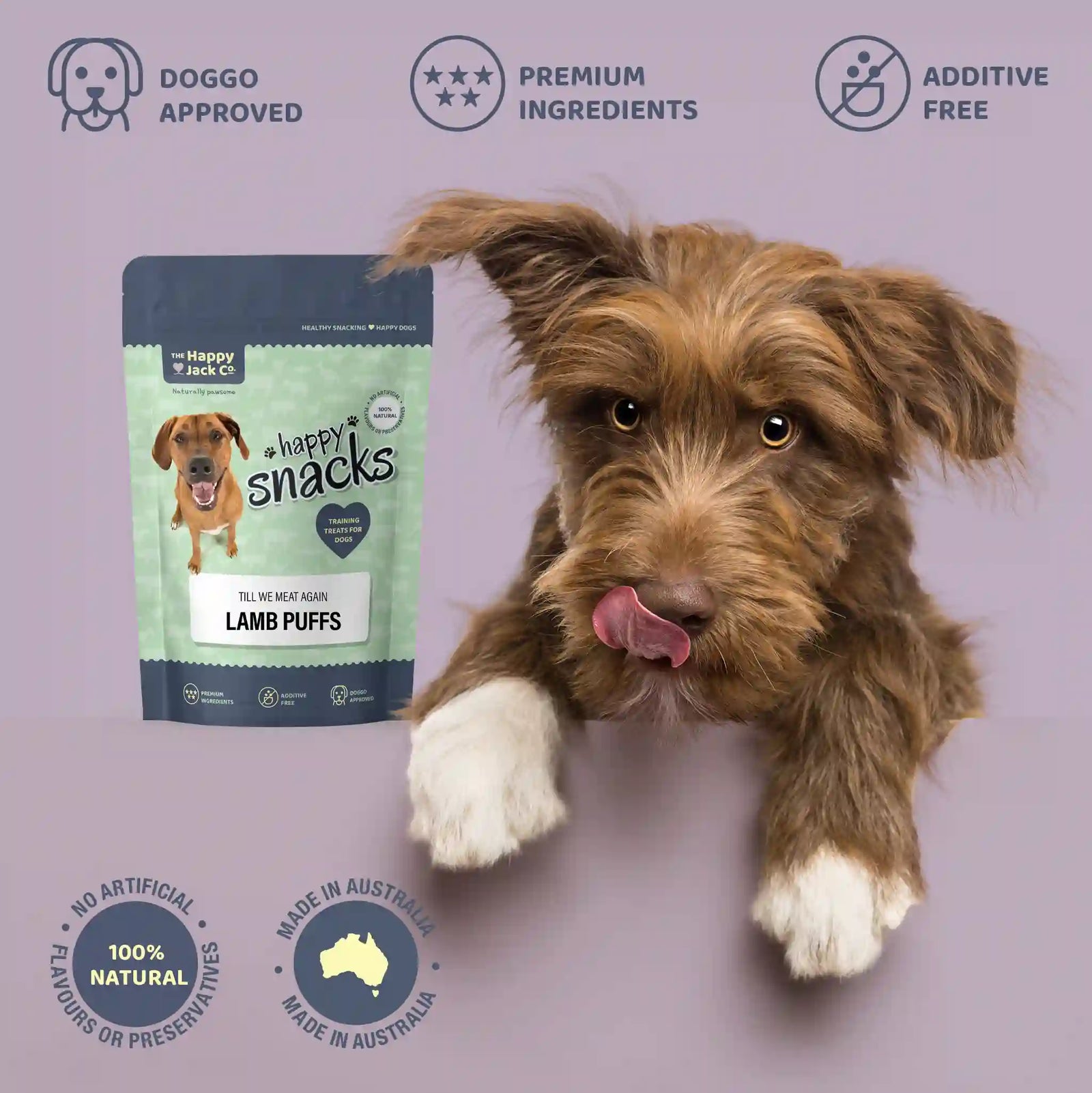
Ever wondered, why is my dog is constantly scratching and licking? Chances are they could be suffering from an allergy.
Common symptoms of allergies in dogs
The symptoms of allergies in dogs can vary depending on the cause but generally the list below is an indication that your dog is suffering from an allergy.- Itchiness
- Constant licking
- Red, inflamed skin
- Itchy ears
- Hives
Types of allergies in dogs
Allergies are a reaction to foreign substances by your dog's body’s immune system. There are a few different types of allergies that can effect dogs, from skin allergies, food allergies, and environmental allergies. They can all be difficult to manage and to make things more complicated, the symptoms of all these different types of allergies can overlap.
Skin allergies, known as allergic dermatitis, are the most common type of allergic reactions in dogs. There are three main causes of skin allergies in dogs:
- Flea allergy dermatitis
- Food allergies
- Environmental allergens
Flea allergy dermatitis is an allergic reaction to fleabites because dogs are allergic to flea saliva. This can make your dog extremely itchy, especially at the base of the tail with their skin becoming red, inflamed and scabbed.
Food allergies and sensitivity can cause your dog itchy skin as well. The most common problem areas for dogs with food allergies are their ears, paws and belly – this could also include an upset stomach with vomiting and/or diarrhoea.
Environmental allergens, such as grass, pollen, dust and mould, may cause an atopic allergic reaction or atopic dermatitis. These allergies are usually seasonal, so your dog may only be itching during certain times of the year. Summer and spring can be a challenging time, as many grasses and flowers will seed or bloom at this time of year. The most commonly affected areas are the paws and ears but also include in between the toes, the paw joints, belly, groin, underarms, around the muzzle and eyes.
Never leave skin allergies to heal on their own as they can pose the risk of secondary infection. When your dog scratches, bites, and licks at their skin, it can open up their skin to yeast and bacterial infections.
Acute Allergic Reactions
Although rare, just like people, dogs can have an acute reaction and can go into anaphylactic shock. This can be fatal if not treated. Bee stings and vaccine reactions, among other things, can cause an anaphylactic response in some dogs, so it’s always a good idea supervise your dog receiving any new vaccine, drug or food item.
Your dog may also develop hives or facial swelling in response to an allergen. Swelling of the face, throat, lips, eyelids, or earflaps may look serious, but is rarely fatal, and your veterinarian can treat it with an antihistamine.
How to Treat Allergies in Dogs
The best way to treat an allergy is avoidance, in the case of food allergies this is an easier option as you can control what goes into your pet’s daily diet.
In the case of environmental allergies avoidance of the allergen is not always possible and in the case of atopic dermatitis it will probably keep flaring up.
If you're looking for a natural treatment to help alleviate your dog's constant licking or scratching you can use our all-natural and organic products to help wash away the allergen (if environmental) and applying a skin balm and topical spray.
Our Ruff Skin Salvation skin repair salve is full of ultra-hydrating oils and essential oils that help to calm and nourish your dog's skin.
Our Gentle Dog Shampoo Bars come in scented and unscented for dog's with extra sensitive skin. We recommend only washing your dog when necessary, either to wash away an allergen or once a month to keep them fresh. Over-washing can dry your dog's skin which can lead to more scratching.
Our Ditch the Itch spritzer has a soothing blend of Aloe Vera gel and essential oils to help to calm and soothe your dog's itchy skin.
If the allergy is severe and persistent a trip to the vet for a full allergy test and medication may be required.
Happy customers
"My dog had very dry skin with little hair growth on her back. After a week the hair has grown and the skin is not as dry. I would recommend this product." Read more reviews













